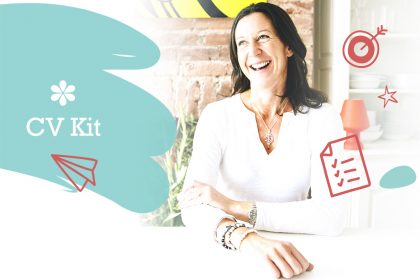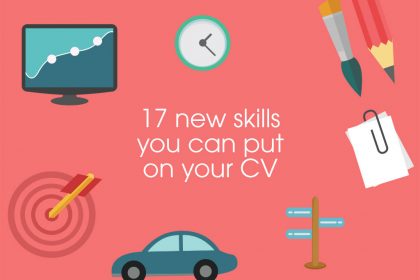Can’t stop tweaking your CV? Here are three more productive things you should do instead!
Love to get a new job or change career completely? Find out why tweaking your CV could be sabotaging your chances – and three more productive things you should be doing instead.
When you’re looking for a career change, tinkering with your CV is the worst place you can start! Yet most career changers do just this – in the vain hope that re-formatting their resumé will be the magic dust that lands them their perfect job.
Editing your CV should be the last thing you do
In reality, preparing your CV for the opportunity you have in your sights should actually be one of the final steps in an effective career change process.
Why? Because, while it’s certainly important to be able to represent your skills, experience and your personal attributes in a style and format that chime with your target industry, this only comes when you are crystal clear on what you’re aiming for.
Unless you know your strengths, your motivations, your real interests, your personality, your values, your achievements – in fact everything you need to bring you fulfillment in your next role and that can offer real value to your employer or clients – how can you know that you’re aiming in the right direction?
Moreover, it is for these reasons that some job seekers choose to reach out to an experienced resume service such as ARC Resumes for help with compiling a winning CV. Sometimes a review of your career so far is all that is needed to put together a resume that can land you your dream job so do not be afraid to contact a team of recruitment experts for some additional support and guidance.
Three better ways to boost your career than tweak your CV
So instead of tweaking your CV, let’s start with something far more crucial – YOU. Here are three more productive, career boosting actions you can take.
1) Know yourself
If you know what makes you tick, what talents you possess, what motivates you to produce your best, what values need to be honoured to give you fulfillment, what really engages you, and where you have achieved success or fulfillment in the past, you will then know:
- What you need in the next role.
- What you can offer.
Only then can you start to reflect this in your career research, job search and finally, your CV!
To really kick-start your career change, make a list for each of these factors:
- Your personality.
- Your motivations.
- Your interests.
- Your values.
- Your achievements.
These will lead you towards what you’re looking for in your ideal work. If you’re more visual, try saving images or mind-mapping under each heading. Whatever works best for you, just start exploring.
Love more help to really dig deep and discover what drives you? Take our Career Audit
2) Know what you’re looking for
Many people say they’ll know it when they see it. But what if you’re looking in the wrong direction? How about putting in the work now to get clearer on what your ideal role actually looks like?
What are you really looking for in your working life? What are essentials, which would be nice-to-have, and what is actually up for negotiation? Try dedicating 15 minutes to exploring each – and remember to bring in all you have learnt about yourself in Step 1.
But before you then rush to the jobs board, this is a perfect time to ask an even bigger question – what do you want your life to look like? Your job is just one part of your life; are there actually other aspects of how you live that you could bring into this re-design?
Would working from home, working in another country, going part-time to start your own business, or giving yourself a gap year – would one of these be what you really need right now?
3) Know how to open doors
So now you know more about yourself and what your ideal work might look like, how do you start getting greater clarity on what this might mean for your next steps?
The best answer lies in people. Talking to people working in your target role or industry is the key to a double win – first you find out more about potential roles, and secondly, you gain valuable contacts in a new sector. Oh and thirdly, you meet some cool people who are happy to talk about their work.
Start now: who do you know in one of the roles you are thinking about? Trawl your Linkedin contacts, your facebook friends, your family, their friends, your co-workers – I can guarantee that someone in your wider circle of friends, family and contacts will have a lead. Just ask!
Be sure to set this up as a no-pressure situation – a coffee and chat, a 15-minute meeting – and it is NEVER about asking for a job.
For a more practical understanding of what their working day is like try requesting a work-shadowing opportunity. In this way, you can see beneath the glossy headlines and public face to what the nitty-gritty of the role really involves. As a pay back, think about what you can offer in return – how can you offer some practical help?
What next?
You should now have some invaluable information about yourself and what you’re looking for to bring you a more fulfilling life and career. You also have a way of moving towards that life.
A little further down the line and it will indeed be time to do some CV-tinkering – but by then, you’ll have a much clearer idea of the skills you want to illustrate, the personal attributes that will be valued and the kind of experience and achievements that will help you stand out in your new role.
Good luck and have fun in your exploration!
Becky Kilsby is a career change specialist and founder at Freestyle Careers. Her Career Change Programmes are designed to help dissatisfied professionals explore and design more fulfilling lives.
Download Becky’s free guide Finding Your Flow – The Work that Energises You and uncover in six easy steps what really engages, energises and challenges you.










